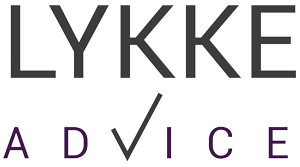A big part of advocacy in Brussels is networking. Usually, an event is a good opportunity to catch up with an old colleague, an MEP assistant, a policy officer in the European Commission, or a potential alliance partner who shares similar interests. No need to tell you that networking with these people is key for a successful lobby strategy and getting your message across in Brussels.
Networking is an essential part of public affairs and influencing EU policies. It is essential in gathering intelligence, identifying potential allies, and understanding the different opinions and arguments concerning the policy files you are interested in. It is also a good way to catch up informally and get information that you cannot normally get via newsletters, official documents, and other formal channels. Therefore, it is not something you can just put on hold and wait and then create again after the pandemic.
However, traditional networking ended when the COVID-19 pandemic hit Europe in 2020. No live events anymore, meaning no easy opportunity to build and strengthen your network. So, you can either sit back and wait until the world opens up again, or you can adapt to the new environment and challenge yourself to network in a new way.
The traditional events in Brussels have to a large extent been replaced with webinars. At the beginning of last year, they were totally without interaction and a copy-paste of a face-to-face format, but most associations and companies have now seen the value of interactive webinars. Interactive webinars with the possibility to comment or ask questions provide an opportunity to make sure your arguments are heard and as well be a building block to start your online networking. By asking a question or commenting your associations’ position will be visible and you can build on that and refer to that when bilateral contacting participants afterwards.
One big advantage of online events is also that they are much less time-consuming than traditional events. Attending a networking event can easily take hours, including travel time. Also, engaging across borders is much easier, and e.g., reaching out to experts, scientists etc is much easier in the online world. However, the networking part requires a lot more than networking in normal face-to-face events. You will not meet people by coincidence. It will require you to be proactive and to reach out directly which can feel more intimidating than if you reach out during an event where you both are present. Online interaction is more direct and less subtle than at face-to-face events however, it is not necessarily a negative thing.
One of the things we learned during the pandemic is that you should not be afraid to reach out and ask for a virtual coffee and search for opportunities to expand your network. This is to some extent the same job you would do in traditional public affairs during your stakeholder mapping phase. Contacting someone referring to a specific issue or a political ask is much easier than contacting a person because you would like and see the benefit of having this person in your network – maybe not for a specific issue, but for more longer-term engagement.
But online networking is not only about having a virtual coffee and bilateral interaction or interaction in smaller groups. A big part of it consists of using online platforms such as e.g., Twitter and LinkedIn. This task is time-consuming and takes a real effort: you can’t just casually start a conversation by talking about the weather in front of a buffet during a coffee break; it will never happen by chance – you need to be proactive and you need to be relevant. You also have to see it as a long-term investment that requires time and effort to achieve success. You might also have to accept that responses and results will not come as fast and easy and be ready for people ignoring your message. Online networking is likely to stay permanently to a bigger degree than what we had before the pandemic.
Everyone working in public affairs in Brussels will attest to the fact that a good network adds high value to your work. After all, influencing policymaking is a lot about the relationships we build with alliance partners, decision-makers and policy officers. And yet we meet a lot of public affairs professionals that are not investing effort and time in building and nurturing their networks. But a network is like flowers: you need to water it and take good care of it constantly, otherwise flowers – and your network likewise – will not flourish.
If you are a public affairs professional with between 1 and 3 years of experience and are interested in learning more about networking, digital public affairs, and public speaking, Lykke Advice offers training for a reduced price in May/June 2021. Read more about the training on the website.


